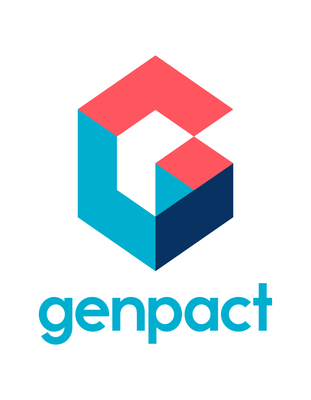Despite Hype, Few Workers Believe Artificial Intelligence Will Threaten Their Jobs, Finds New Genpact Research
Press Releases
Nov 14, 2017
NEW YORK, Nov. 14, 2017 /PRNewswire/ — Contrary to recent headlines about an artificial intelligence (AI) apocalypse, very few workers fear AI will take away their jobs, finds a new study from Genpact, a global professional services firm focused on delivering digital transformation. The survey of more than 5,000 people from across the United States, United Kingdom, and Australia also shows a striking gap in views about AI’s impact on their current roles versus the expected impact on the future workforce.

Only 10 percent of people surveyed strongly agree that AI threatens their jobs today; however, nearly everyone (90 percent of respondents) believes younger generations need new skills to succeed as AI becomes more prevalent in the workplace. The research underscores how businesses need to prepare their employees for AI— yet very few are doing so.
“Artificial intelligence brings a seismic shift in the future of work – making some roles obsolete and enhancing others, while at the same time, creating new jobs, and even spawning new professions,” said Sanjay Srivastava, chief digital officer, Genpact. “Our research shows that employees want and need additional skills to embrace these opportunities – and companies must respond. Businesses that will succeed in this new world will be those that ramp up fast to invest in the right AI tools and upskill their workforce.”
The global study represents a broad range of education and income groups. A little more than half of respondents (54 percent) are classified as workers, being employed at least part-time, while the remainder are students, retired, or currently unemployed. This workforce survey is the second in a three-part Genpact research series, designed to create a comprehensive view on AI adoption, readiness, and impact across three critical and disparate communities – the C-suite, the workforce, and consumers. Combined, these results give businesses valuable insights on how to succeed with artificial intelligence. The first study, published in September 2017, explores the C-suite perspective. Genpact will release its consumer findings later this year.
What, me worry?
While only 28 percent of all respondents worry about artificial intelligence’s threat on their current jobs, most (58 percent) fear AI’s impact on their children’s and future generations’ career opportunities.
A third of workers surveyed worry that they will not have the money or time for necessary retraining to help them work with AI. These fears may be valid, considering that Genpact’s study of senior management, the first in the series, reveals that nearly one in five businesses have no plans at all to reskill their employees. Only a quarter of companies currently help their employees take advantage of AI, and just a little more than a third provide reskilling to address technology disruption.
Mind the training gap
When considering new skills people think they will need, and where they will get them, few survey respondents look to advanced degrees. They cite relevant primary and secondary education in subjects that will prepare younger generations for a future AI-focused workplace as more important than higher education. In addition, almost half (45 percent) of those surveyed believe future generations will need more on-the-job training via human-machine interactions.
Half of all respondents also cite the ability to adapt to change as the top quality necessary to succeed in an environment with an increasing AI presence. Moreover, most people value critical thinking, problem solving, and creativity over technical skills like coding, statistics, and math.
Bring on the bots?
Forty percent of all workers surveyed indicate they would be comfortable working with robots within the next three years. In contrast, Genpact’s senior management study indicates that nearly 80 percent of global companies that are AI leaders believe their employees will work comfortably with robots in the same time frame. This gap points to potential challenges for businesses to realize AI’s benefits. Still, most employees see positive impacts from AI in the workplace. They cite time savings and reduction in human errors as among top benefits, and younger generations acknowledge these advantages even more prominently.
“The big question is how to effectively encourage and adopt human-machine collaboration,” said Srivastava. “And the key is in a top-down culture that embraces AI, learning, and training at all levels, within a comprehensive change management framework.”
See The workforce: Staying ahead of artificial intelligence for more details on this study. For views from the C-suite, read the first report in the series, Is your business AI-ready?
About the Research
In August 2017, Genpact worked with research firm YouGov to survey 5,179 people (2,189 in the United States, 1,749 the United Kingdom, and 1,241 in Australia) to study how artificial intelligence impacts their personal and professional lives. Of the total survey population, 2,795 were employed at least eight hours per week. YouGov conducted the fieldwork online between August 15-30, 2017. In addition, in a separate study conducted in June 2017, Genpact and FORTUNE Knowledge Group surveyed 300 global senior executives on AI issues, and also differentiated between “AI leaders” – respondents who achieve strong positive business outcomes from AI, scoring 9 or 10 on a 10-point scale — and “AI laggards,” who scored 1 through 6 on the same scale.
About Genpact
Genpact (NYSE: G) is a global professional services firm that makes business transformation real. We drive digital-led innovation and digitally-enabled intelligent operations for our clients, guided by our experience running thousands of processes for hundreds of Global Fortune 500 companies. We think with design, dream in digital, and solve problems with data and analytics. We obsess over operations and focus on the details – all 78,000+ of us. From New York to New Delhi and more than 20 countries in between, Genpact has the end-to-end expertise to connect every dot, reimagine every process, and reinvent companies’ ways of working. We know that rethinking each step from start to finish will create better business outcomes. Whatever it is, we’ll be there with you – putting data and digital to work to create bold, lasting results – because transformation happens here. Get to know us at Genpact.com and on LinkedIn, Twitter, YouTube, and Facebook.
For more information:
|
Danielle D’Angelo (Genpact Media Relations) +1 914-336-7951
Taylor Blackburn (for Genpact Australia) +61 (0)2 8094 7637 |
Abby Trexler (for Genpact U.S.) +1 212-931-6179
Rudra Bose (for Genpact India) +91 9811626585 |
Laura Brooks (for Genpact U.K.) +44 207 680 7113
|
View original content with multimedia:http://www.prnewswire.com/news-releases/despite-hype-few-workers-believe-artificial-intelligence-will-threaten-their-jobs-finds-new-genpact-research-300555297.html
SOURCE Genpact



